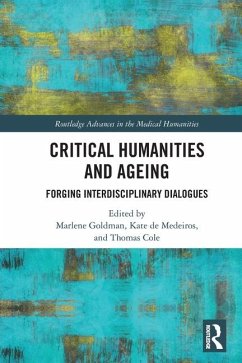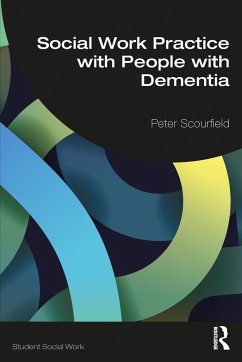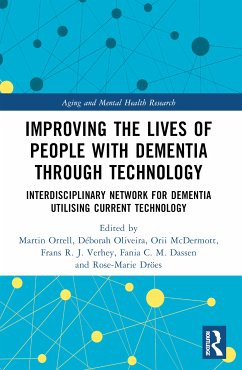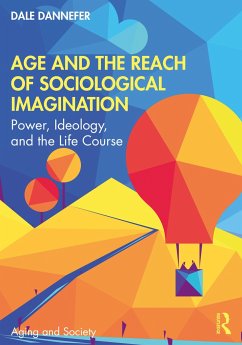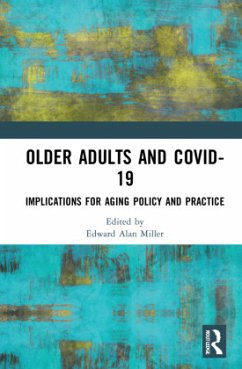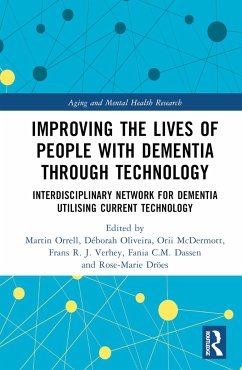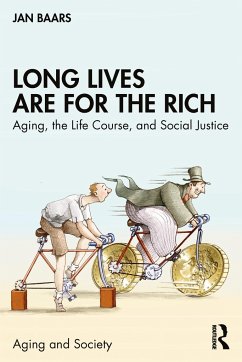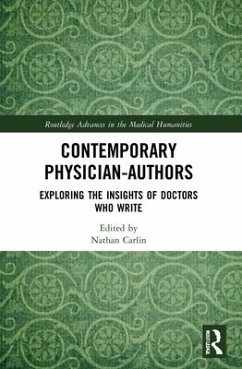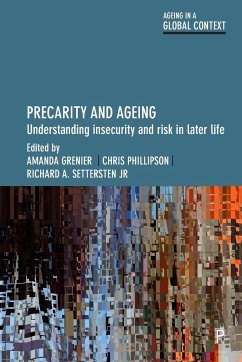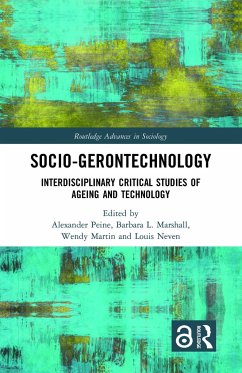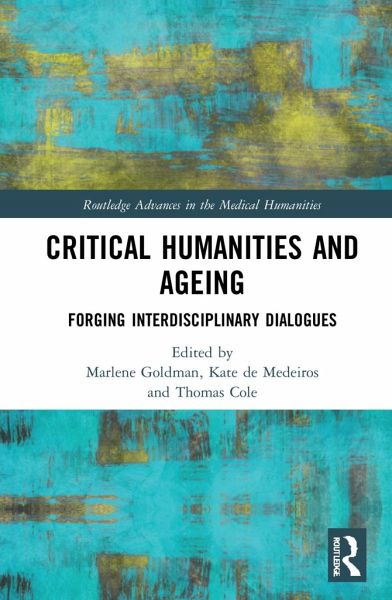
Critical Humanities and Ageing
Forging Interdisciplinary Dialogues
Herausgegeben: Goldman, Marlene; de Medeiros, Kate; Cole, Thomas
Versandkostenfrei!
Versandfertig in 6-10 Tagen
140,99 €
inkl. MwSt.
Weitere Ausgaben:

PAYBACK Punkte
70 °P sammeln!
Providing a critical humanities approach to ageing, this book addresses new directions in age studies: the meaning and workings of "ageism" in the twenty-first century, the vexed relationship between age and disability studies, the meanings and experiences of "queer" aging; the fascinating, yet often elided work of age activists; and, finally, the challenges posed by AI and, more generally, transhumanism in the context of caring for an ageing population.Divided into four parts: Part I: What Does It Mean to Grow Old? Part II: Aging: Old Age and Disability Part III: Aging, Old Age, and Activism ...
Providing a critical humanities approach to ageing, this book addresses new directions in age studies: the meaning and workings of "ageism" in the twenty-first century, the vexed relationship between age and disability studies, the meanings and experiences of "queer" aging; the fascinating, yet often elided work of age activists; and, finally, the challenges posed by AI and, more generally, transhumanism in the context of caring for an ageing population.
Divided into four parts: Part I: What Does It Mean to Grow Old? Part II: Aging: Old Age and Disability Part III: Aging, Old Age, and Activism Part IV: Old Age and Humanistic Approaches to Care the volume provides an innovative, two-part structure that facilitates rather than merely encourages interdisciplinary collaboration across the humanities and social sciences. Each essay is thus followed by two short critical responses from disciplinary viewpoints that diverge from that of the essay's author.
Drawing on work from across the humanities - philosophy, fine arts, religion, and literature, this book will be a useful supplemental text for courses on age studies, sociology and gerontology at both undergraduate and graduate levels.
Divided into four parts: Part I: What Does It Mean to Grow Old? Part II: Aging: Old Age and Disability Part III: Aging, Old Age, and Activism Part IV: Old Age and Humanistic Approaches to Care the volume provides an innovative, two-part structure that facilitates rather than merely encourages interdisciplinary collaboration across the humanities and social sciences. Each essay is thus followed by two short critical responses from disciplinary viewpoints that diverge from that of the essay's author.
Drawing on work from across the humanities - philosophy, fine arts, religion, and literature, this book will be a useful supplemental text for courses on age studies, sociology and gerontology at both undergraduate and graduate levels.




